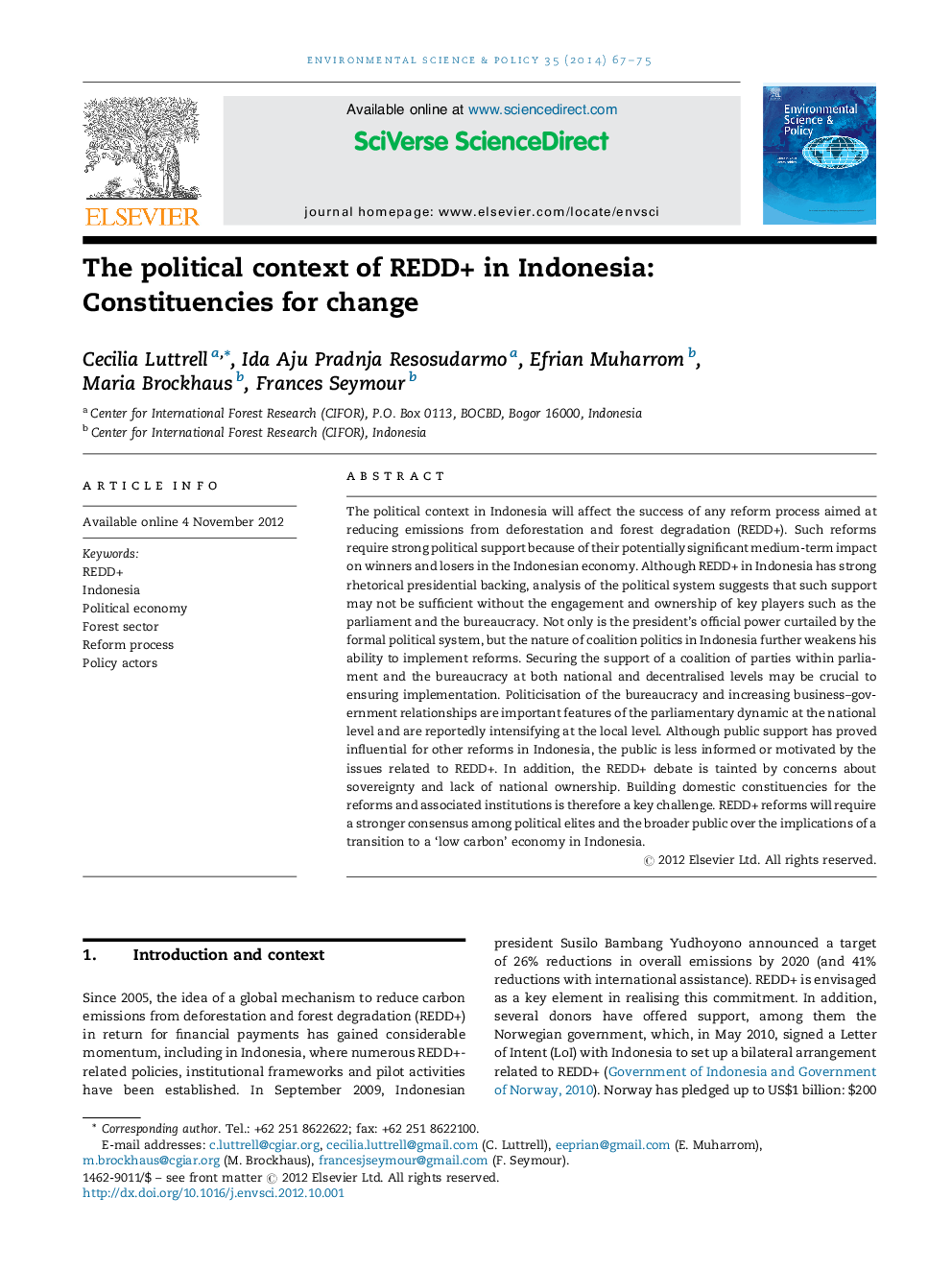| Article ID | Journal | Published Year | Pages | File Type |
|---|---|---|---|---|
| 1053562 | Environmental Science & Policy | 2014 | 9 Pages |
The political context in Indonesia will affect the success of any reform process aimed at reducing emissions from deforestation and forest degradation (REDD+). Such reforms require strong political support because of their potentially significant medium-term impact on winners and losers in the Indonesian economy. Although REDD+ in Indonesia has strong rhetorical presidential backing, analysis of the political system suggests that such support may not be sufficient without the engagement and ownership of key players such as the parliament and the bureaucracy. Not only is the president's official power curtailed by the formal political system, but the nature of coalition politics in Indonesia further weakens his ability to implement reforms. Securing the support of a coalition of parties within parliament and the bureaucracy at both national and decentralised levels may be crucial to ensuring implementation. Politicisation of the bureaucracy and increasing business–government relationships are important features of the parliamentary dynamic at the national level and are reportedly intensifying at the local level. Although public support has proved influential for other reforms in Indonesia, the public is less informed or motivated by the issues related to REDD+. In addition, the REDD+ debate is tainted by concerns about sovereignty and lack of national ownership. Building domestic constituencies for the reforms and associated institutions is therefore a key challenge. REDD+ reforms will require a stronger consensus among political elites and the broader public over the implications of a transition to a ‘low carbon’ economy in Indonesia.
► Implementing REDD+ in Indonesia requires significant political-economic reform. ► Presidential backing is strong but curtailed by the political system and politics. ► Ownership and engagement by Parliament and the bureaucracy is important. ► Building constituencies for national ownership of the reforms is a key challenge. ► A consensus over Indonesia's economic future and relevance of REDD+ is needed.
